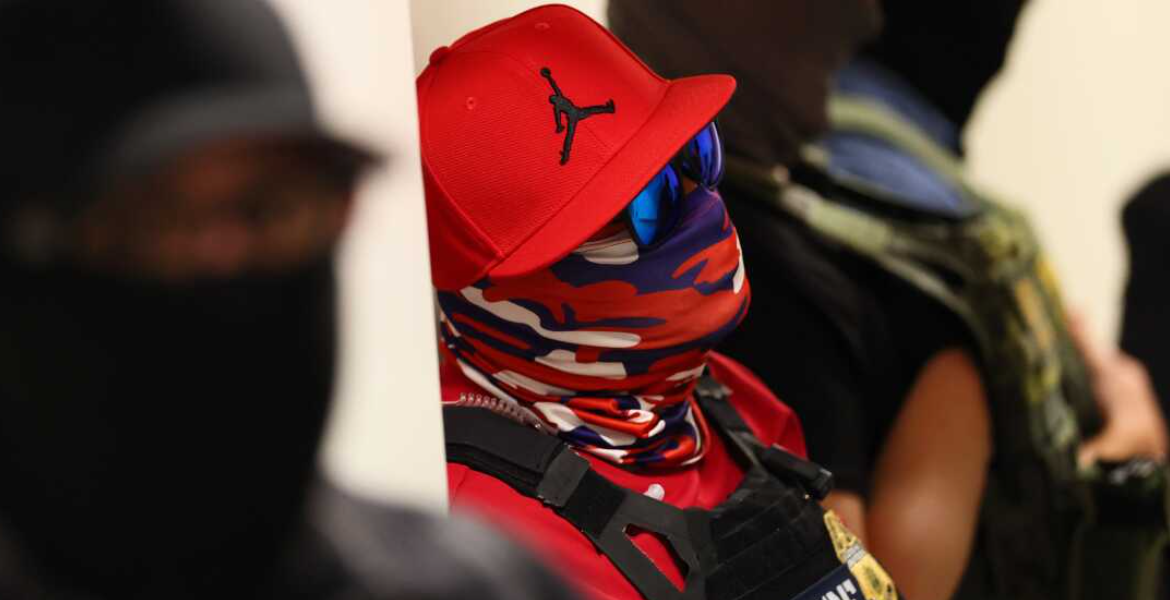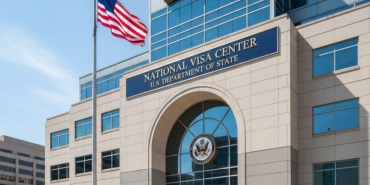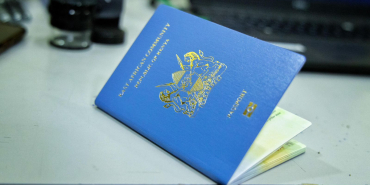Masked Immigration Agents Fuel Public Fear and Confusion Across the US

A lawsuit filed by Job Garcia, a US citizen, against the Department of Homeland Security (DHS) has amplified the ongoing debate surrounding the tactics employed by federal immigration agents during enforcement operations.
Garcia, a 37-year-old photographer and Ph.D. student, is suing for $1 million, alleging racial profiling and constitutional rights violations following his detention after filming a raid conducted by masked agents in Hollywood, California. The incident, which took place outside a Home Depot, involved agents, some wearing vests labelled “POLICE — US BORDER PATROL,” allegedly smashing the window of a box truck occupied by a Latino man and making arrests without presenting warrants.
Garcia, who was recording the incident and advising the driver in Spanish, was subsequently tackled, restrained, and detained for over 24 hours, allegedly without being informed of the reason for his arrest. Garcia's case has become a focal point in the broader controversy surrounding immigration enforcement practices, particularly the use of masks and unmarked vehicles. Civil rights advocates, legal experts, and lawmakers have criticised these methods, arguing they erode public trust, incite fear, and risk the abuse of power.
The Mexican American Legal Defence and Educational Fund (MALDEF), representing Garcia, contends that his arrest was unlawful and retaliatory, targeting him for exercising his right to document law enforcement activity in public. The DHS, however, disputes these allegations. Assistant Secretary for Public Affairs Tricia McLaughlin asserts that Garcia was arrested for assaulting a federal officer and verbally harassing agents during the operation, saying, “It had nothing to do with his citizenship.”
McLaughlin added that the DHS possesses evidence of the alleged assault, although this evidence has not been publicly released. She also defended the agents’ use of masks, citing an increase in threats and doxxing incidents targeting law enforcement personnel and their families. The use of facial coverings and plainclothes by federal agents has drawn legislative scrutiny. Democratic Senators Alex Padilla of California and Cory Booker of New Jersey have introduced the VISIBLE Act, a bill aiming to prohibit the use of masks during civil immigration arrests and mandate clear identification of officers.
The legislation seeks to ensure agents display their agency affiliation and badge number or name, thereby enhancing transparency and accountability. Senator Padilla, the son of Mexican immigrants, has criticised the enforcement tactics. He experienced first-hand the tensions between federal authorities and advocates for immigrant rights when he was forcibly removed and handcuffed by federal agents after attempting to question DHS Secretary Kristi Noem at a press conference in Los Angeles.
Legal experts have also voiced concerns about the implications of masked enforcement. Stephen Kass, a member of the New York City Bar Association, suggests that while masking may be justified in covert operations against organised crime, its use in routine immigration arrests is unwarranted and dangerous.
"Once they are masked, they do not feel accountable because they do not feel they will be identified,” Kass cautioned, noting that such anonymity could encourage excessive force and undermine legal recourse for victims.
Concerns about impersonation have also surfaced. In Philadelphia, a man posing as an ICE agent allegedly robbed an auto shop at gunpoint, while in North Carolina, another impersonator allegedly coerced a woman into sexual acts under threat of deportation. Garcia describes a climate of fear and isolation among Latino residents in Los Angeles, many of whom now avoid public spaces altogether. He expressed concern for his mother, a US citizen who speaks limited English and no longer ventures out alone. “People are just staying home altogether and not coming out,” Garcia said, adding that he feels “othered” in his own country.
For Garcia, the lawsuit is a stand against systemic injustice. “What they’re doing is actual terror,” he stated. “Stripping people from their families—this is beyond politics. This is harming actual human beings.” His legal team argues that the agents violated multiple constitutional protections, including the First Amendment right to free speech, the Fourth Amendment protection against unreasonable searches and seizures, and the Fifth Amendment guarantee of due process.
The DHS maintains that its agents operate within legal bounds and that masking is a necessary precaution in an increasingly hostile environment. McLaughlin emphasised that agents verbally identify themselves and wear vests marked with agency insignia, and that their vehicles are clearly labelled. She also cited a rise in assaults against ICE officers, attributing it to online harassment and public demonisation.








Add new comment